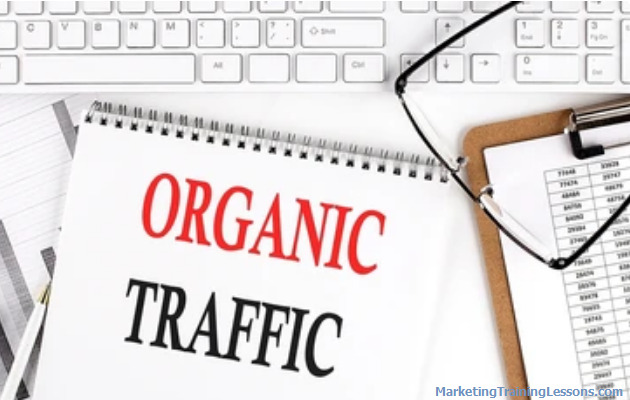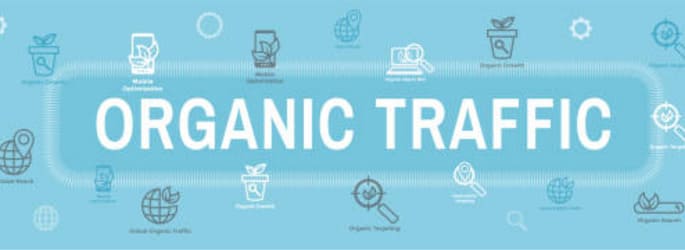Boost Organic Web Traffic To Increase Conversions

5 Steps to Boosting Organic Web Traffic and Increasing Conversions
Let’s be honest—attracting visitors to your website and turning them into customers isn’t exactly a walk in the park.
You’ve invested in quality content, your site looks professional, but the traffic just isn’t rolling in, and conversions? Still not where you want them. Frustrating, right?
You’re definitely not alone. Loads of businesses face the same uphill battle.
But here’s the upside: you don’t need a massive budget or a miracle to see real improvement. There are practical, cost-effective steps you can take to bring in more organic web traffic and actually boost those conversion rates.
In this post, I’m sharing five proven strategies that can help you step up your online game—without draining your wallet.
Grab your coffee, settle in, and let’s turn your website into a highway of traffic working overtime for your business.
Click here for my #1 recommendation for making money online while working from home
Introduction to Organic Web Traffic
Organic web traffic is the lifeblood of most online businesses. And yet, so many businesses are still struggling to attract organic traffic.
In this article, we’ll show you how to boost your organic web traffic and increase conversions. First, let’s define what organic web traffic is.
Organic web traffic is the traffic that comes to your website from search engines like Google, Bing, and Yahoo. This includes both paid and organic search results.
Organic web traffic is different from direct traffic, which is the traffic that comes to your website from other websites (such as referrals).
Direct traffic can be good for your business, but it’s not as valuable as organic web traffic. This is because direct traffic doesn’t necessarily come from people who are interested in what you have to offer.
That is why organic traffic is so valuable; they are all potential customers and interested in what you have to offer.
Now that you know what organic web traffic is, let’s talk about how to increase it.
Increasing Organic Web Traffic
There are two primary ways to increase organic web traffic: optimizing your website for search engines and creating great content that attracts links and social shares.
We’ll first start with optimization since it’s the foundation of good SEO. To optimize your website for search engines, you need to do two important things: on-page optimization and off-page optimization.
On-page optimization is the process of making sure each page on your website is properly optimized for keywords relevant to your business.
This includes things like ensuring your titles and meta descriptions are well-written and contain the right keywords. You also need to make sure your content is keyword-rich and relevant to your niche.
Off-page optimization involves building links from other websites to your website. This helps boost your website’s ranking in search results, as well as sends valuable referral traffic to your website.
You can build links by creating great content that other websites want to link to. You can also use tools like backlink-building software or services like SEO agencies.
Finally, once you’ve optimized your website for search engines and created quality backlinks, it’s time to focus on writing great content that will attract social shares and links.
This means creating articles, blog posts, videos, podcasts, and other forms of content that people find interesting and shareable. By doing this, you’ll get more organic web traffic from people who are interested in what you have to offer.
Follow these steps and invest some time into optimizing your website for search engines and creating great content. From then on you’ll be well on your way towards increasing organic web traffic and boosting conversions.

Step 1: Optimize Your Site for Search Engines
If you want to increase organic web traffic, the first step is to make sure your site is optimized for search engines. This means making sure your site’s title and description are keyword-rich.
Your site’s content must be relevant to what people are searching for. You can also improve your site’s ranking by building links to it from other websites.
Click here for my #1 recommendation for making money online while working from home
Step 2: Create Quality Content for Your Audience
Quality content is the key to boosting organic web traffic and increasing your conversions. You can write engaging content to put on your own website, but also submit it to article directories.
There are a few things to keep in mind when creating quality content for your audience:
1. Write for your target audience. It’s important to know who you’re writing for and what kind of information they’re looking for. Write helpful content that is relevant to their needs and interests.
2. Make sure your content is well-written and error-free. Nothing turns off a reader more than poorly written or inaccurate information. Take the time to proofread your work before publishing it.
3. Use visuals to break up the text and add interest. People are visual learners, so including images, infographics, and videos into your content can help make it more engaging and enjoyable to read.
4. Keep it fresh! Regularly publishing new and original content will keep people coming back for more. Try to mix things up by mixing up the types of content you publish (e.g., blog posts, articles, whitepapers, etc.).
By following these tips, you can create quality content that will help boost organic traffic and increase conversions on your website!
Step 3: Leverage Social Media Channels
As the world becomes more and more connected, it’s important that businesses leverage social media channels to reach their target audience. There are a number of ways to go about this, but some tips include:
– Use social media ads: Platforms like Facebook, Twitter, and Instagram offer businesses the ability to place ads that target specific demographics. This can be a great way to reach new potential customers.
– Create shareable content: Make sure your website or blog has content that is easy to share on social media. This could include things like infographics, videos, or helpful blog posts.
– Engage with your audience: Take the time to respond to comments and questions from people who follow you on social media. This will help create a connection with your audience and make them more likely to become customers.
Step 4: Pay Attention to User Experience
User experience is everything when it comes to web traffic and conversions. If your website is difficult to navigate or doesn’t offer a good user experience, visitors will likely leave without taking any action.
There are a few key things you can do to improve user experience on your website:
– Make sure your website is responsive and mobile-friendly. More and more people are using their phones and tablets to browse the web, so it’s important that your website looks good and works well on these devices.
– Use clear and concise copy. It is essential that visitors are able to understand what your website is about and what you’re offering without feeling confused.
– Use high-quality visuals. In addition to using clear copy, make sure your website uses images, videos, and other visuals that are high quality and relevant to your business.
– Have a strong call to action. You have to tell visitors what you want them to do on your website, whether it’s signing up for a newsletter or making a purchase.
By paying attention to user experience, you can ensure that more visitors stay on your site and take the desired action.
Click here for my #1 recommendation for making money online while working from home
Step 5: Invest in Paid Advertising
Paid advertising is a great way to boost organic web traffic and increase your conversions. By investing in paid ads, such as Pay-Per-Click or Google Adsense, you can reach a wider audience and significantly increase your chances of generating leads and sales.
While there are many different types of paid ads, the most effective ones are those that target your specific audience. These paid ads must also be relevant to the products or services you promote.
When choosing which paid ads to invest in, be sure to consider your budget, your goals, and who your target audience is. With a little research and planning, you can easily find the right paid advertising solution for your business.
Conclusion
As you can see, to increase your organic web traffic and conversions there are a number of steps that you can take.
By following the above five tips and strategies, you will be able to make the most out of your website’s potential and get more people to visit it.
These visitors are all potential clients who have the ability to significantly improve your conversion rates and increase your return on investment.
Remember, it is important to keep track of how effective each step has been so that you can continue refining your strategy until it delivers the desired results.
Don’t hesitate to adjust things along the way in order to optimize your website for maximum performance and conversions!
Click the image below to see how a person increased his organic traffic with a simple trick. You’ll also get some good ideas for title tags to improve organic traffic.


